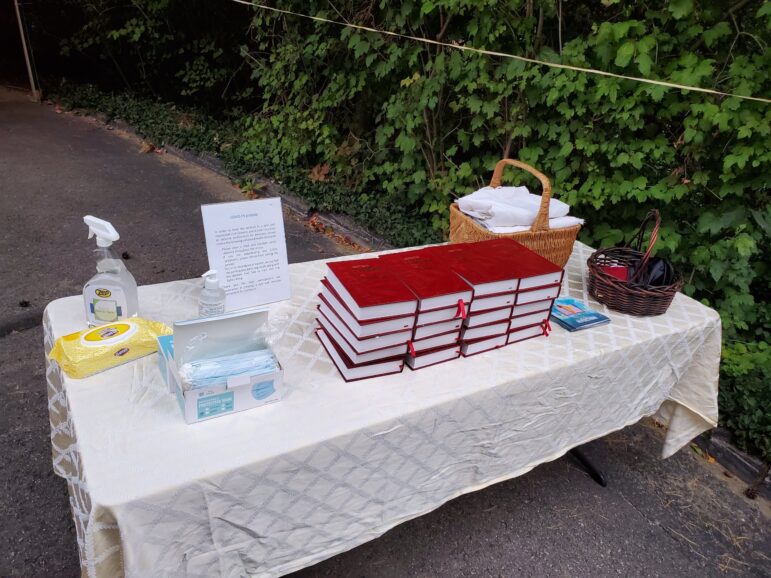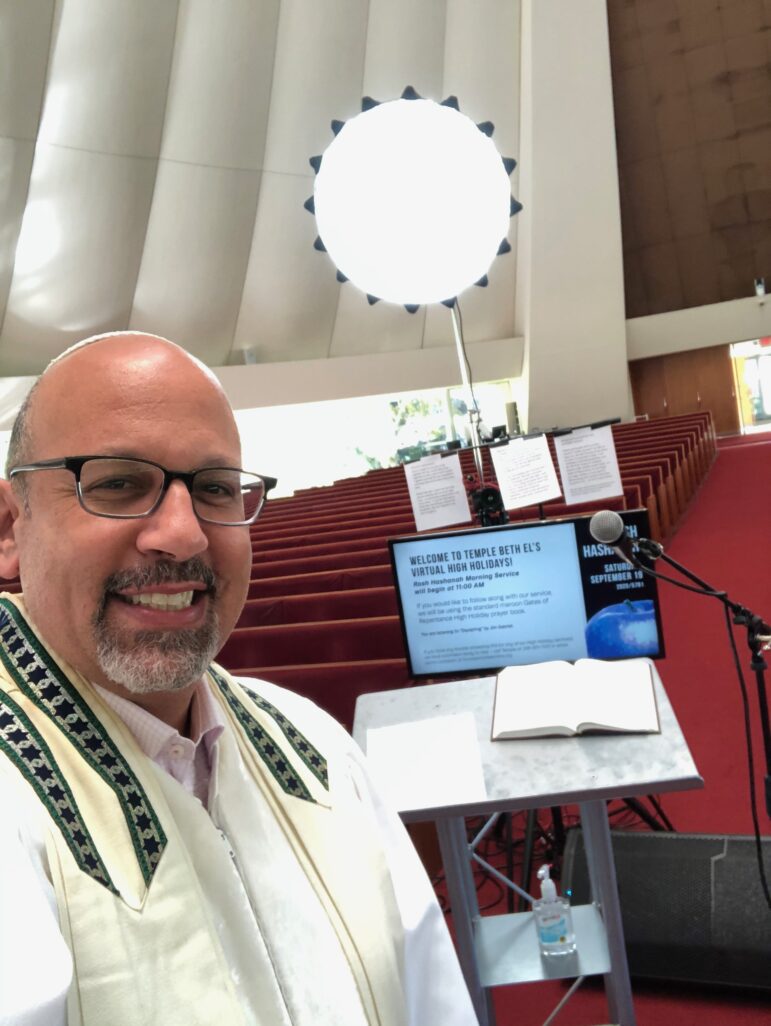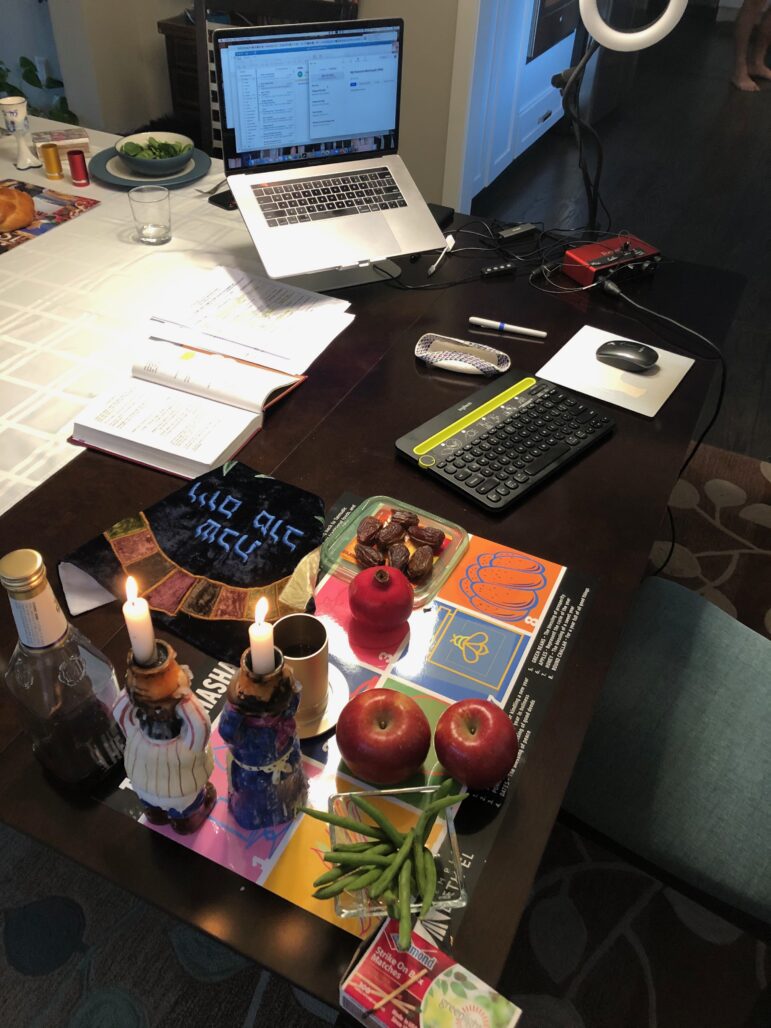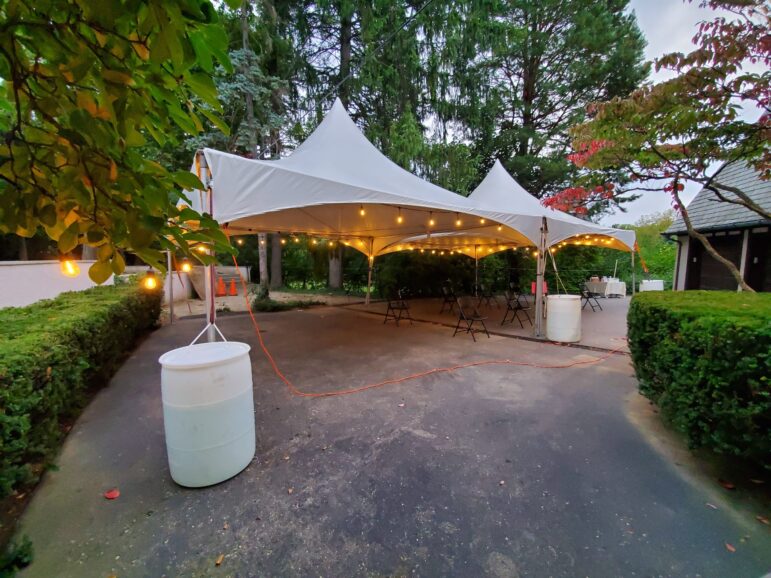Jewish community finds news ways to observe the holidays
For most Jewish people, the fall months mean the High Holidays, the most important days of the Jewish calendar. This year, Jewish community leaders in metro Detroit, namely in one suburb, did their best to bring the usual tradition and meaning of these days to these unusual times.

Credit: Rabbi Levi Dubov
Jewish community population
Bloomfield Hills alone is home to 2,583 Jewish households, while Metropolitan Detroit includes 71,750 Jews, according to the 2018 Detroit Jewish Population Study: A Portrait of the Detroit Jewish Community. With such an extensive Jewish population, Bloomfield Hills residents typically see busy temples and crowded celebrations this time of year. However, congregations and communities had to rethink their traditions to stay safe, while still making the holidays special.
“A big part of any religious life, including Judaism, is being connected to a community, and COVID-19 has meant that we are suddenly not being able to be together for happy events, sad events, all kinds of things,” Rabbi Mark Miller who has served for the past six years as the Senior Rabbi at Temple Beth El in Bloomfield Hills.
“We’ve had to rethink how we connect to a community, and it is a real challenge to figure out not just how to have an event online, but an event that’s online and feels like you’re really connecting with people,” Rabbi Miller said. “Everything we do has had to shift how we focus and how we’re able to do all the things we do as a synagogue.”
The High Holidays include Rosh Hashanah — the Jewish New Year — and the High Holy Days that conclude with Yom Kippur, the Day of Atonement. Rosh Hashanah is celebrated two days of the year, while Yom Kippur is observed with one day of fasting. All three of these days are usually spent attending synagogue, but were replaced with Zoom services and quaint family dinners.
“Pretty much everything for the High Holidays was virtual,” Rabbi Miller said. “We had a whole range of events on both Rosh Hashanah and Yom Kippur, some of them were similar to what we’d normally do and some of them were really reimagined with different creative approaches.”
This year, Rosh Hashanah began on Sept. 18 and Yom Kippur started on Sept. 27. Judaism follows a lunisolar calendar, so while these dates fall on different days of the modern-day calendar, they are on the same day each year of the Jewish calendar.
“This high holiday season really put gratitude front and center,” Rabbi Miller said. “As people have been living with the coronavirus situation, they realize that they want this spiritual side to their lives. This year in particular, this spiritual side gets us through hard times, makes good times better and is just an important part of life.”
Although most synagogues closed their physical doors, they were wide open virtually and congregants were encouraged to join Zoom services and live streams.
“We live streamed everything,” Rochelle Nelson said President of Temple Beth El in Bloomfield Hills. “Some places pre-recorded services but ours were in real time. We felt the members were very happy with how the services ended up being; it ended up working out great.”
“I learned you can’t translate all parts of the service to work on a virtual basis, so this made us all look forward to when we can be together again,” Nelson said.

Credit: Rabbi Mark Miller
New ways to celebrate
“I think the holidays mean renewal, rejuvenation, refresh and in a lot of ways a reset,” said Marianne Bloomberg, Associate Director of Philanthropic Engagement at the Jewish Federation of Metropolitan Detroit. “I think they still mean that for people, but I just think this year is hard for everyone.”
Bloomberg saw lots of Jewish people all over the community finding new ways to celebrate the holidays in different ways.
“I saw lots of people decorated garages and had socially distant celebrations that way, which I thought was really creative and special,” Bloomberg said. “I think people were looking for ways to celebrate the holidays and everybody is just trying really hard and doing the best they can.”

Credit: Rabbi Mark Miller
Socially distant celebrations
While some synagogues and temples held virtual services and events, Chabad Jewish Center of Bloomfield Hills took a different approach.
“We put up a big tent with no walls so it was heavily ventilated and everyone was able to social distance, so we were able to have an in-person service and really be able to celebrate the holidays,” Rabbi Levi Dubov of Chabad of Bloomfield Hills said. “We’ve gotten so much feedback from people saying how meaningful it was.”
Rabbi Dubov and his wife, Mushky Dubov, run the Chabad Jewish Center of Bloomfield Hills and have since they were founded four years ago.
“With all the challenges of COVID-19, we can’t allow the challenging parts of it to blind us of the opportunities,” Rabbi Dubov said. “I think there’s growing pains this year with the high holidays; people are missing things but at the same time, we’re all being trained, somewhat by force, to grow our horizons and discover Judaism in places we haven’t before.”
Regardless of how people celebrated, the High Holidays this year were unprecedented and slightly unconventional, but that didn’t stop Jews, like Rabbi Dubov, from making the best of it and starting new traditions.
“The challenges are eventually going to leave, but the benefits from it are going to stay with us,” Rabbi Dubov said. “There’s not a question that [the pandemic] is a game changer, but it’s teaching us to be more innovative and those innovations are here to stay.”

Credit: Rabbi Levi Dubov